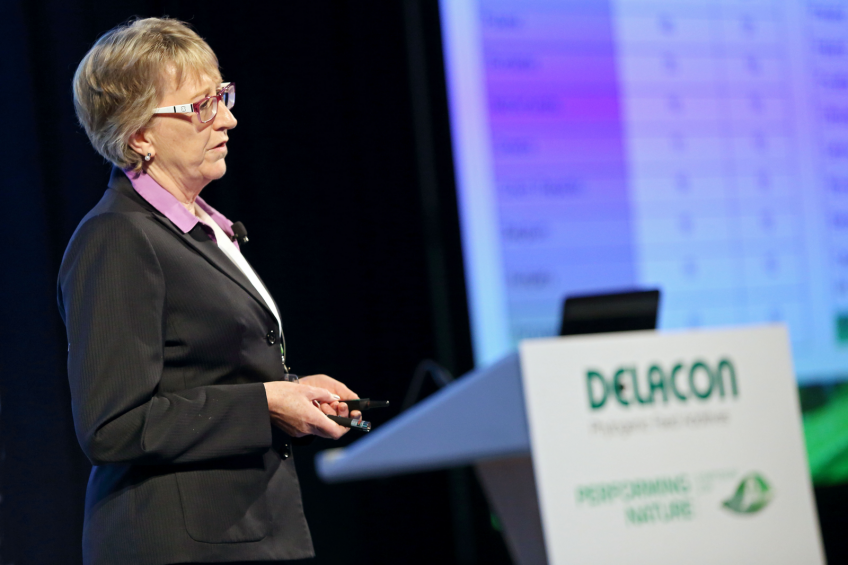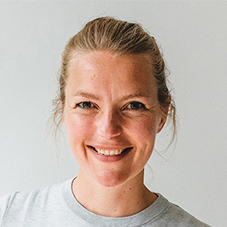Delacon conference: “USA to tackle in-feed antibiotics”

After the EU, the USA is now actively looking for ways to be less dependent on in-feed antibiotics. Increasing feed efficiency and use of alternatives -such as plant extracts- are keys to success.
This was one of the conclusions drawn after the first day of the Delacon Performing Nature Symposium, held prior to Victam Asia. It was the third time that Austrian based company Delacon organised this symposium.
EFSA rules
Speaking at the conference, consultant Elinor McCartney (pictured) explained how the EU ban on in-feed microbials in 2006 has forced the EU to innovate. Many new products, aimed at feed efficiency and digestibility improvement, have hit the market since, claiming to be a good alternative to the microbials. In her presentation McCartney outlined the way the EU deals with the registration process of feed additives and noted that only a few phytogenic feed additives have been approved by EFSA as zootechnical additives. “Most of these plant extracts are listed as flavours (around 300), but only a handful are listed as zootechnical additive or are under evaluation. The latter is more wise to do, as you have the safety, digestibility and performance studies backing up the claims”, she explained. The only phytogenic feed additives that has been approved by EFSA so far as zootechnical additive are Fresta F from Delacon and AviPlus from Vetagro.
USA is confident
Although the EU has learnt a lot from the ban and have been using alternatives for quite some years, the USA seems to take a few more years to implement a ban on all current in-feed antibiotics. The FDA wants to implement a full ban in 2017. Tom Frost, director of nutrition and R&D at Wayne Farms in the USA presented his views on the current situation in the US. “The FDA is now moving towards the Veterinary Feed Directive (VFD), which puts the licenced veterinarian directly involved in approving all medications used in livestock. This means basically that all animal medications are being changed from ‘over the counter’ classification to requiring a prescription”, said Frost. He also addressed that moving towards using less antibiotics in the US requires multiple strategies.
Consultant Robert Schwartz from the US gave a presentation about the antibiotic free (ABF) strategies for US poultry. “Demand for ABF produced broilers will continue to increase and I see a lot of potential in using phytogenics as part of this strategy, in combination with other non-antibiotic tools”, Schwartz addressed. He also noted that coccidiosis and clostridial diseases are the primary disease challenges in ABF broiler production. A challenge for the US livestock industry to deal with a future ABF livestock industry. “I am confident that ABF production technology will improve through the development of improved methods of stress reduction and disease control”, Schwartz concluded.
Record attendance for conference
The conference attracted 350 attendees. Around 100 more than the last edition in Crete (Greece) in 2009. Delacon is based in Steyregg, Austria and exports its products to more than 30 countries. The production facility in Austria has been further enlarged in 2013 and has tripled the production capacity.
Join 31,000+ subscribers
Subscribe to our newsletter to stay updated about all the need-to-know content in the poultry sector, three times a week. Beheer
Beheer











 WP Admin
WP Admin  Bewerk bericht
Bewerk bericht